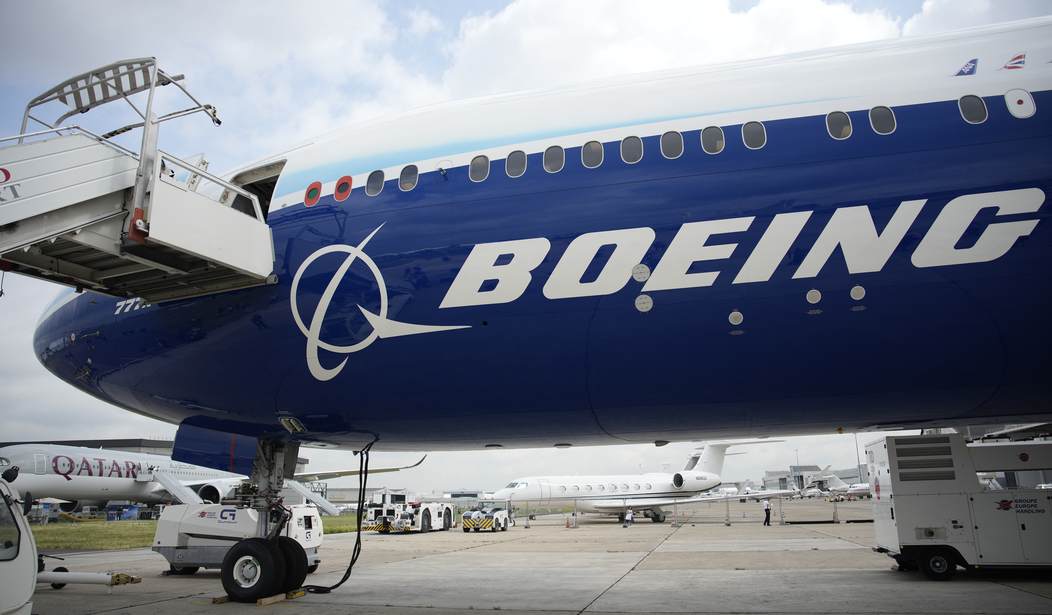As if Boeing didn't already have enough problems, today the Department of Justice announced that they are criminally charging the company with fraud over Boeing's response to the crashes of two of their 737 MAX jets in 2018 and 2019. What the DoJ is doing is offering the company a plea deal so they can avoid a trial and potentially larger penalties. The Justice Department is describing the offer as "nonnegotiable." Boeing can either plead guilty and take the deal or be taken to trial. But as we'll discuss in a moment, not everyone is happy with the proposed deal, and even if Boeing accepts the conditions, this still may not go through smoothly. (Reuters)
The U.S. Justice Department will criminally charge Boeing (BA.N), with fraud over two fatal crashes and ask the planemaker to plead guilty or face a trial, two people familiar with the matter said on Sunday.
The Justice Department planned to formally offer a plea agreement to Boeing later in the day, which includes a financial penalty and imposition of an independent monitor to audit the company's safety and compliance practices for three years, the sources said.
Justice Department officials plan to give Boeing until the end of the week to respond to the offer, which they will present as nonnegotiable, the sources said. Should Boeing refuse to plead guilty, prosecutors plan to take the company to trial, they said.
Boeing and the Justice Department declined to comment. Reuters was first to report the Justice Department's decision to prosecute Boeing and seek a guilty plea.
The deal doesn't exactly look like a backbreaker for Boeing, to put it mildly. It includes a $487.2 million financial penalty, only half of which Boeing would be required to pay because of a previous payment they already submitted. Boeing would also be subjected to three years of probation and continued oversight of their safety and production programs. There were a couple of other smaller provisions, but those were the big-ticket items. While it's not chicken feed, a quarter of a billion dollars isn't going to be much for a company the size of Boeing and they've already agreed to the ongoing investigations into their processes.
As you might imagine, the families of the victims of the two crashes are not happy at all. Their attorneys described this as a "sweetheart deal" and called on the DoJ to withdraw the offer. The families plan to oppose the deal in the courts and demand stiffer penalties. Even if the DoJ and Boeing agree to these terms, the deal would still have to be approved by a judge. If the process gets that far, plaintiffs in the suit involving the families of the victims might be able to convince the judge to block it, but that strategy is not guaranteed to succeed.
Keep in mind that the families have legitimate grievances here. When those two 737s went down, it was the fault of the airlines. Those were not found to be cases of pilot error or aberrant weather conditions. The automatic pilots on the planes were responding in unanticipated ways and forcing the nose of the aircraft downward. Quite a few of the other planes experienced similar dips, but thankfully the pilots were able to regain control and none of them crashed. But the fault in those crashes lies with Boeing.
The fact that this argument is still being dragged out more than half a decade later must be incredibly frustrating for the families. And the stories being told by the Boeing whistleblowers cast serious doubts on the company's claims of always putting safety and sound engineering first. Too many former workers have testified that the management there prioritized getting the planes out the door and on the way to their customers over all else, with people who raised safety concerns facing repercussions or at best being ignored. The Department of Justice needs to tread carefully. They are trying to walk a tightrope between ensuring that justice is served and pushing Boeing over the edge. The case is becoming politically charged, and that's the last thing the DoJ needs right now.









Join the conversation as a VIP Member